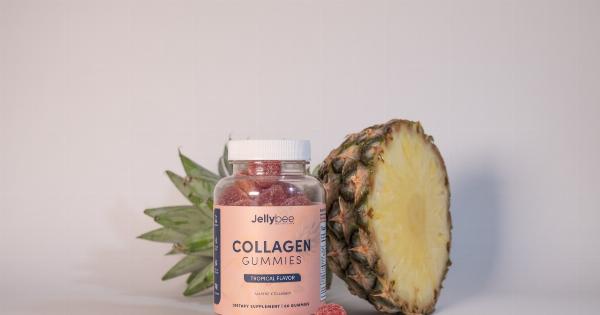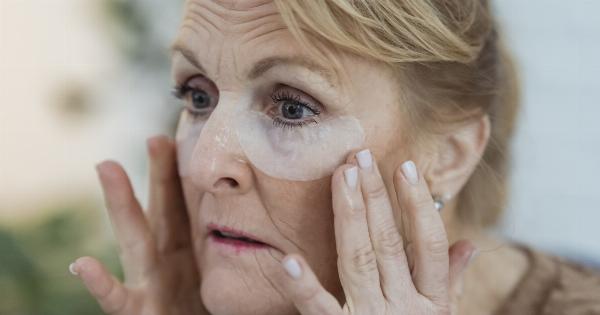Collagen is a protein that plays a crucial role in our bodies, providing structural support and elasticity to our skin, bones, tendons, and ligaments. It is the most abundant protein in our body and acts as a building block for various tissues.
What is Collagen?
Collagen is made up of amino acids, particularly glycine, proline, and hydroxyproline. It is produced by our bodies naturally, but its production decreases as we age, leading to signs of aging such as wrinkles, sagging skin, and joint pain.
Additionally, various lifestyle factors such as a poor diet, smoking, and sun exposure can also deplete collagen levels in the body.
The Different Types of Collagen
There are several types of collagen in our body, but the most common ones are type I, type II, and type III collagen.
The Benefits of Collagen for Skin
Collagen plays a crucial role in maintaining the youthfulness and health of our skin. As we age, our body’s collagen production decreases, leading to wrinkles, fine lines, and dryness.
Adding collagen to your skincare routine can counteract these effects and provide numerous benefits for your skin.
Reduced Wrinkles and Fine Lines
One of the primary benefits of collagen for the skin is its ability to reduce the appearance of wrinkles and fine lines. Collagen helps to improve skin elasticity and firmness, making your skin appear smoother and more youthful.
Increased Hydration and Radiance
Collagen helps to retain moisture in the skin, keeping it hydrated and preventing dryness. Hydrated skin appears more radiant and supple, giving you a healthy and youthful glow.
Improved Skin Elasticity
Collagen strengthens the skin’s structure, enhancing its elasticity. This helps to prevent sagging skin and maintain a more youthful appearance over time.
The Benefits of Collagen for Hair
Collagen also plays a significant role in promoting healthy hair growth and improving hair strength. Its benefits for hair include:.
Enhanced Hair Strength
Collagen is a major component of hair follicles, providing stability and strength. Increasing collagen levels can help to reduce hair breakage and improve overall hair health.
Promotes Hair Growth
Collagen contains amino acids that are necessary for hair growth. Supplementing with collagen can stimulate hair follicles, promoting new hair growth and increasing hair thickness.
The Benefits of Collagen for Joints
Collagen is an essential component of our joints, providing cushioning and support. As we age, joint cartilage breaks down, leading to conditions such as osteoarthritis. Supplementing with collagen can have several benefits for joint health:.
Reduces Joint Pain and Inflammation
Collagen has anti-inflammatory properties and can help to reduce joint pain and inflammation associated with conditions like osteoarthritis.
Improves Joint Mobility
By enhancing joint lubrication and supporting cartilage health, collagen can improve joint mobility and flexibility, making movements easier and more comfortable.
Supports Bone Strength
Collagen is a key component of bone tissue. Consuming collagen supplements can help to maintain bone density, especially in postmenopausal women who are more susceptible to bone loss and osteoporosis.
Other Health Benefits of Collagen
In addition to its benefits for skin, hair, and joints, collagen offers a range of other health benefits:.
Supports Gut Health
Collagen helps to strengthen the gut lining, reducing the risk of leaky gut syndrome and promoting healthy digestion.
Boosts Muscle Mass
Collagen is crucial for maintaining muscle mass and promoting muscle repair. Supplementing with collagen may assist in preserving muscle strength and preventing age-related muscle loss.
Strengthens Nails
Collagen improves the strength and growth of nails, preventing brittleness and breakage.
How to Increase Collagen Levels
While our bodies naturally produce collagen, there are ways to boost its levels:.
1. Collagen Supplements
Collagen supplements are available in various forms, including powders, pills, and liquid. These supplements are derived from animal sources, such as bovine or marine collagen, and can provide a convenient way to increase collagen intake.
2. Eat Collagen-Rich Foods
Incorporating collagen-rich foods into your diet can also boost collagen levels. Some collagen-rich foods include bone broth, chicken skin, fish, and egg whites.
3. Limit Lifestyle Factors that Deplete Collagen
Avoiding lifestyle factors that deplete collagen, such as excessive sun exposure, smoking, and a poor diet, can help to maintain adequate collagen levels in the body.
Conclusion
Collagen plays a vital role in maintaining the health and youthfulness of our skin, hair, and joints.
Supplementing with collagen, eating collagen-rich foods, and adopting a healthy lifestyle can help to maximize the benefits of collagen and support overall well-being.


























